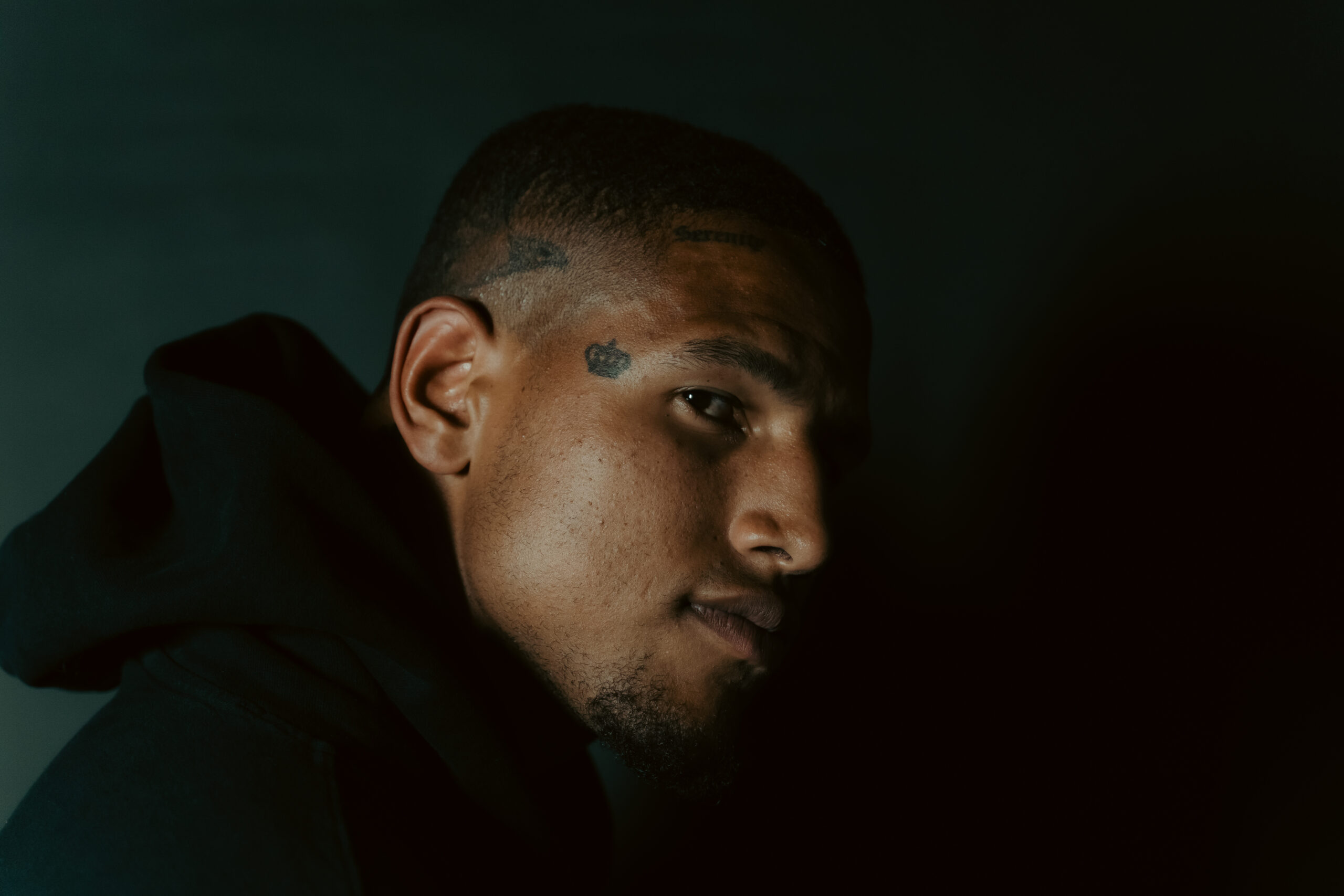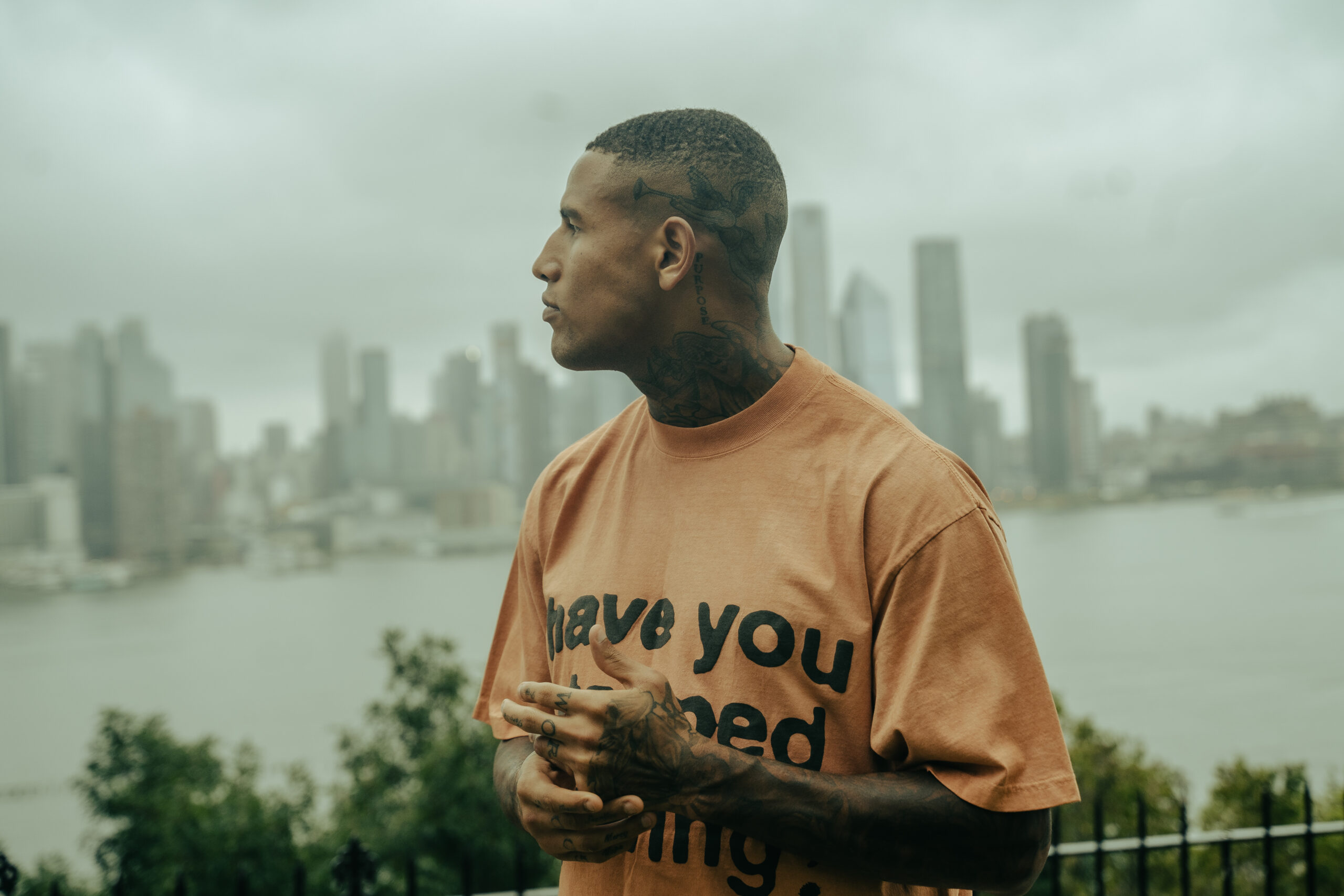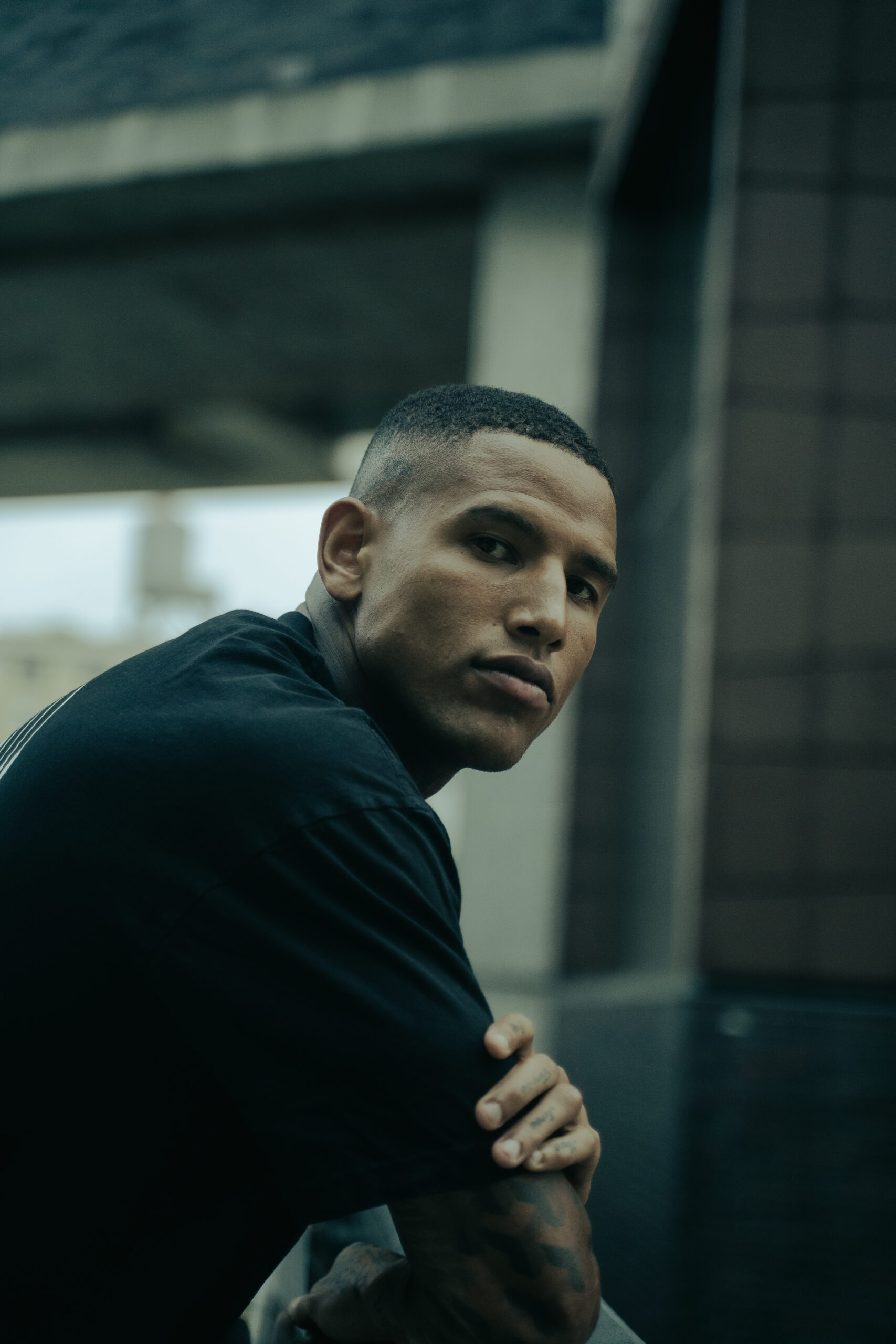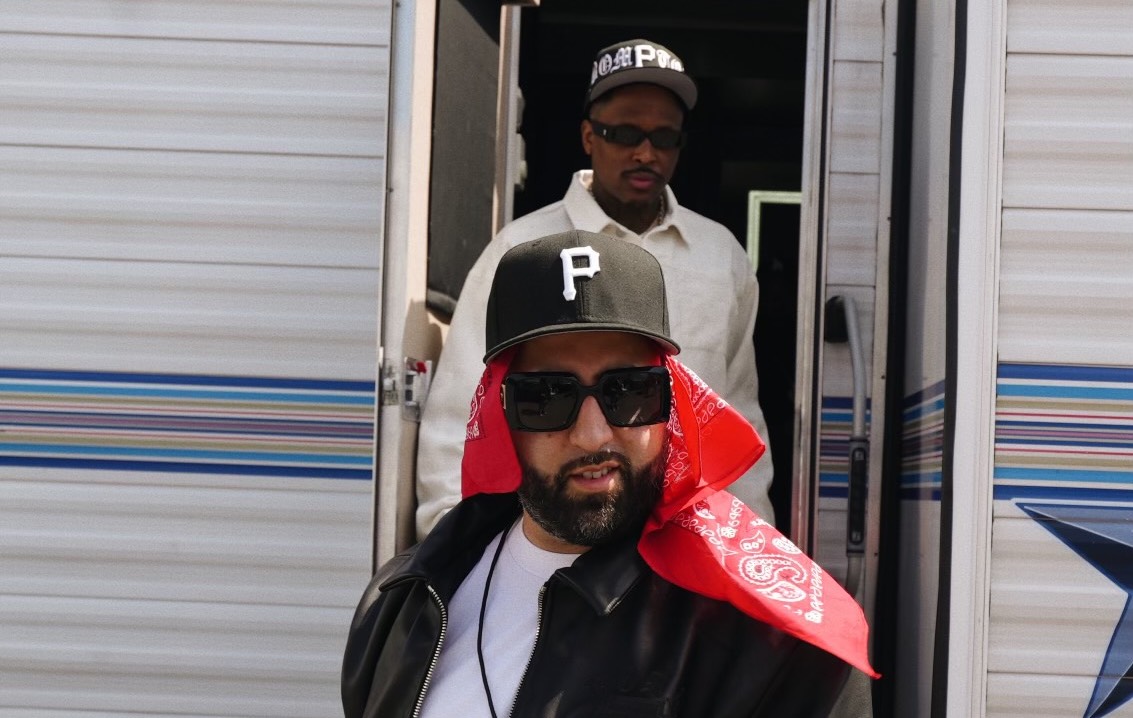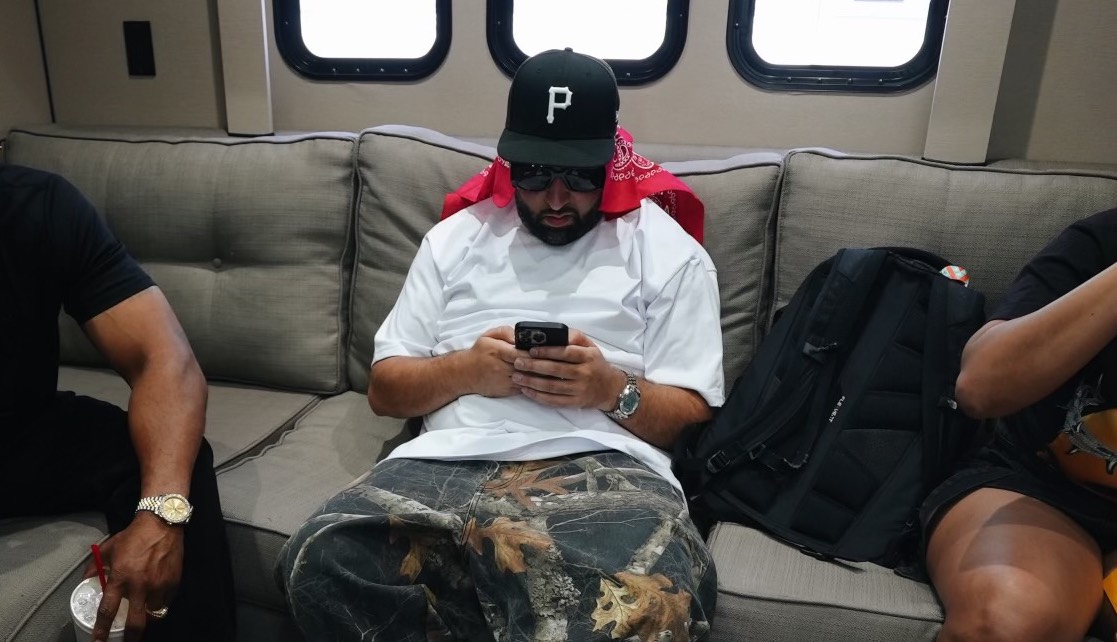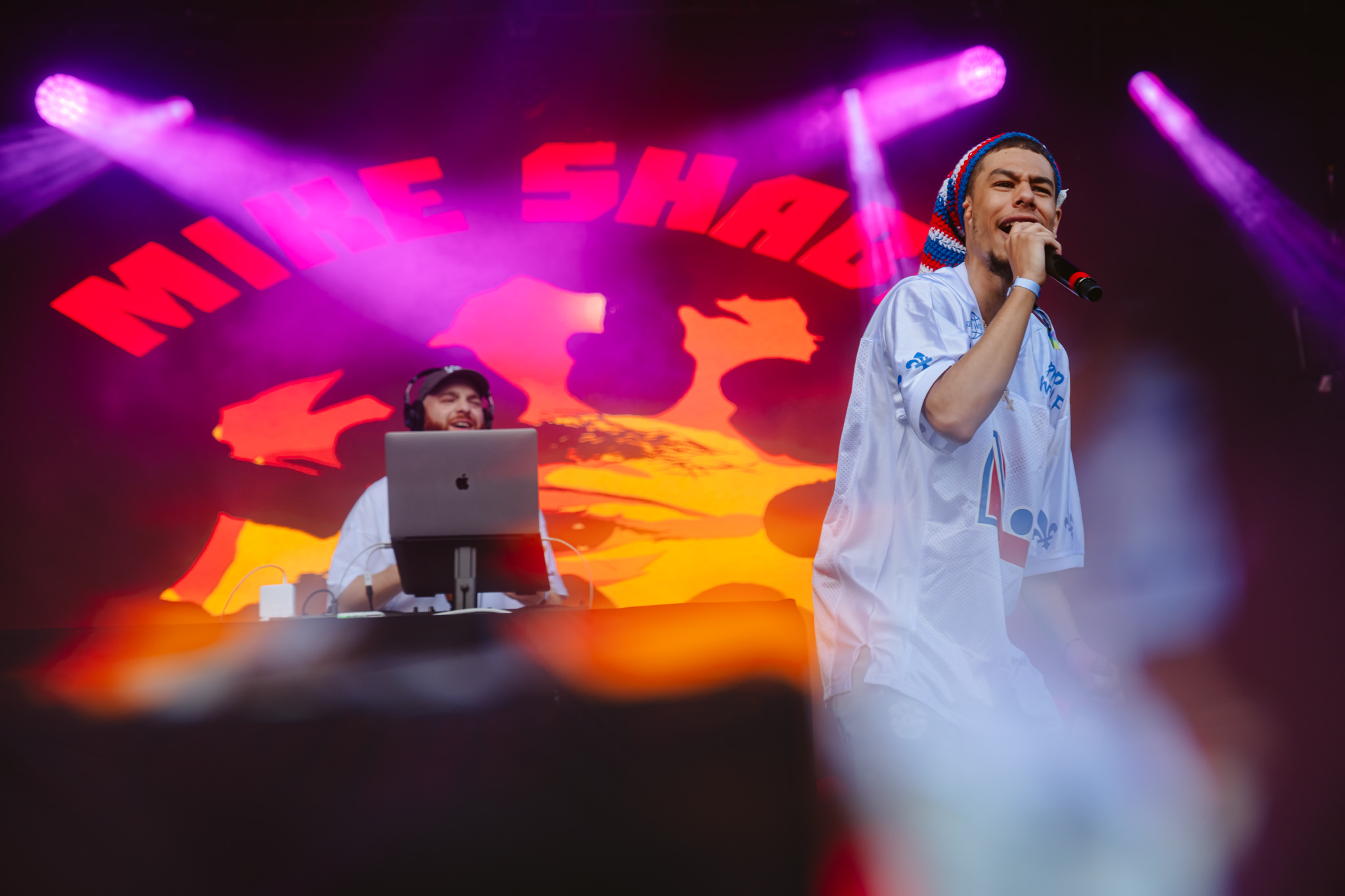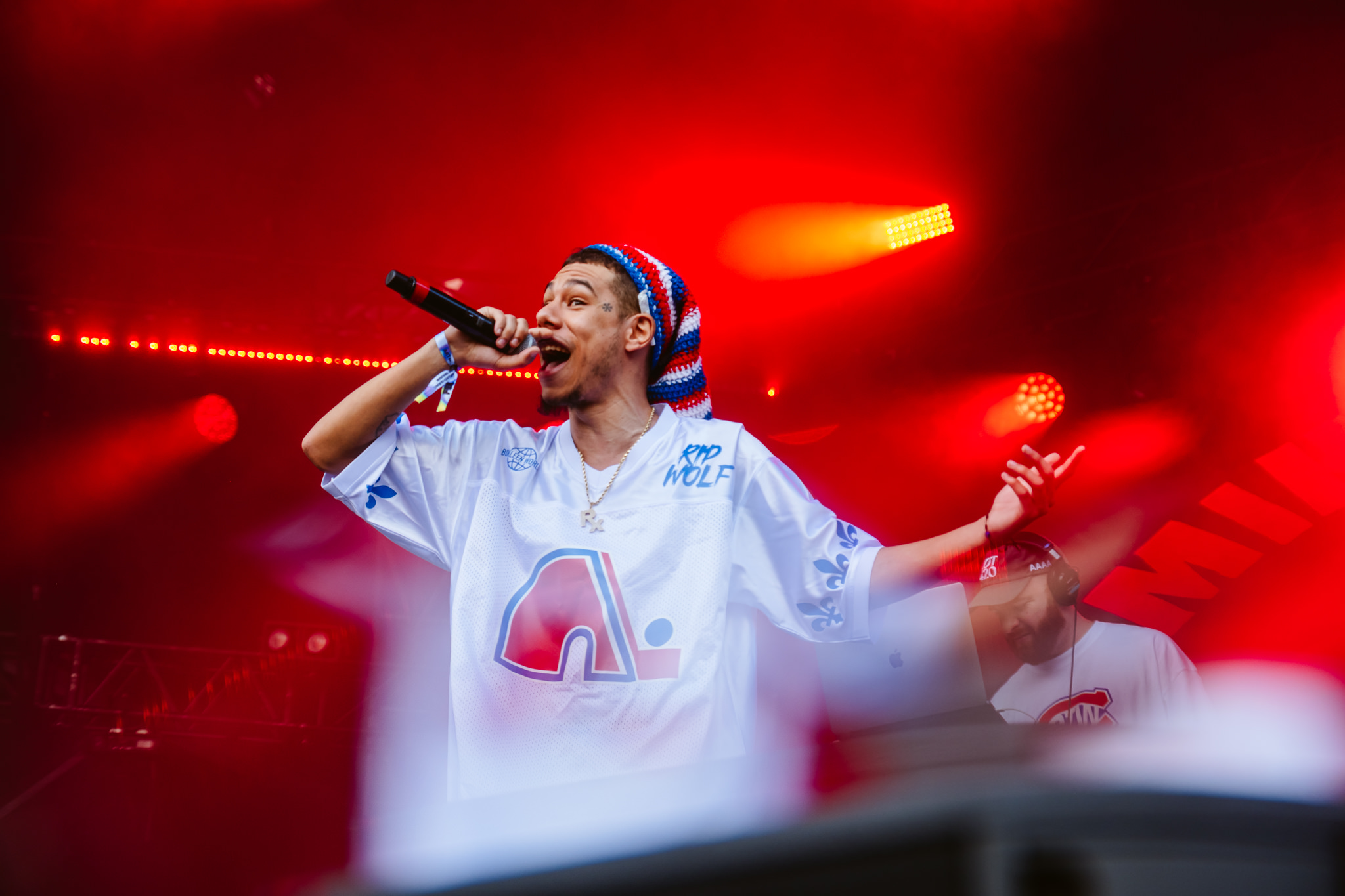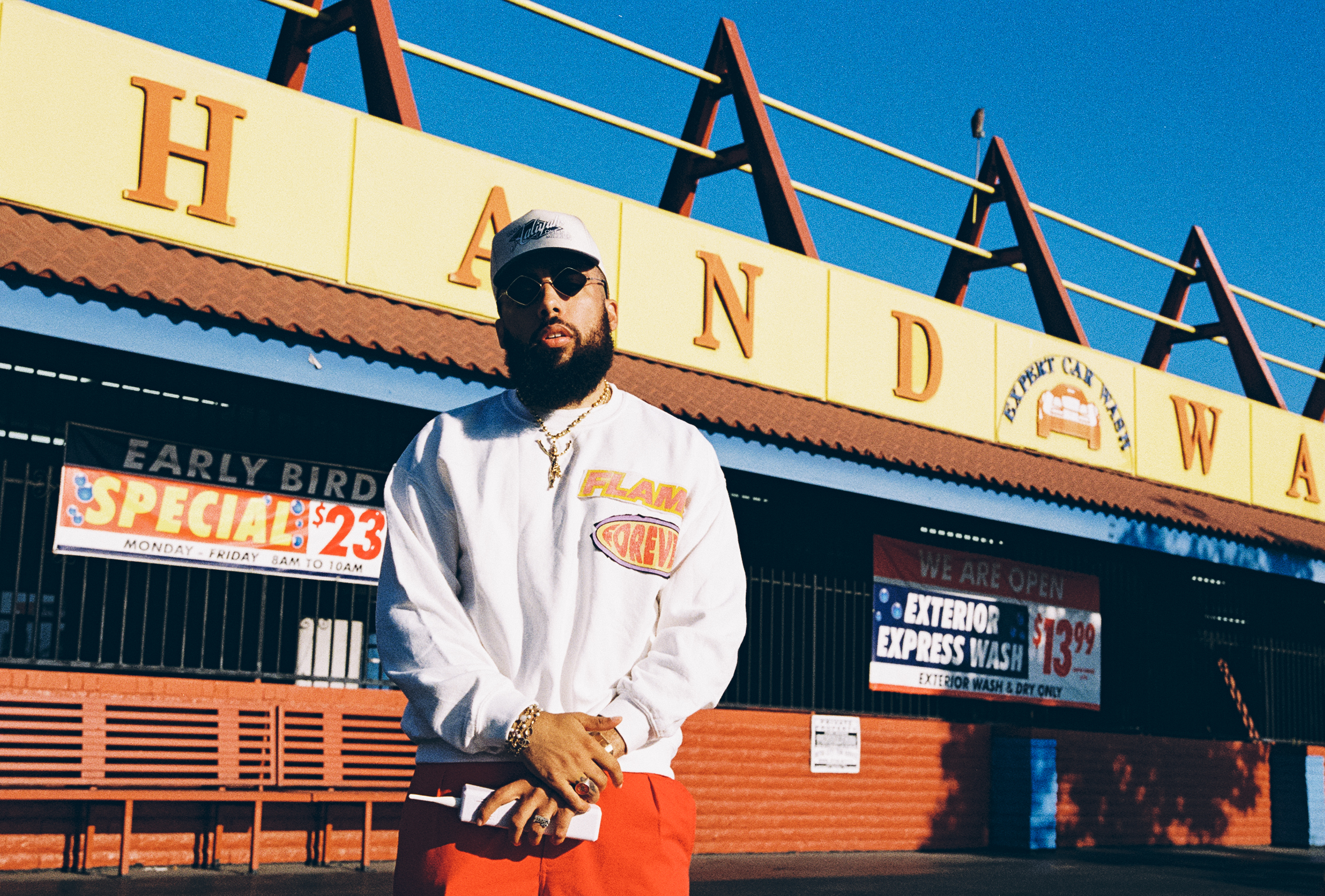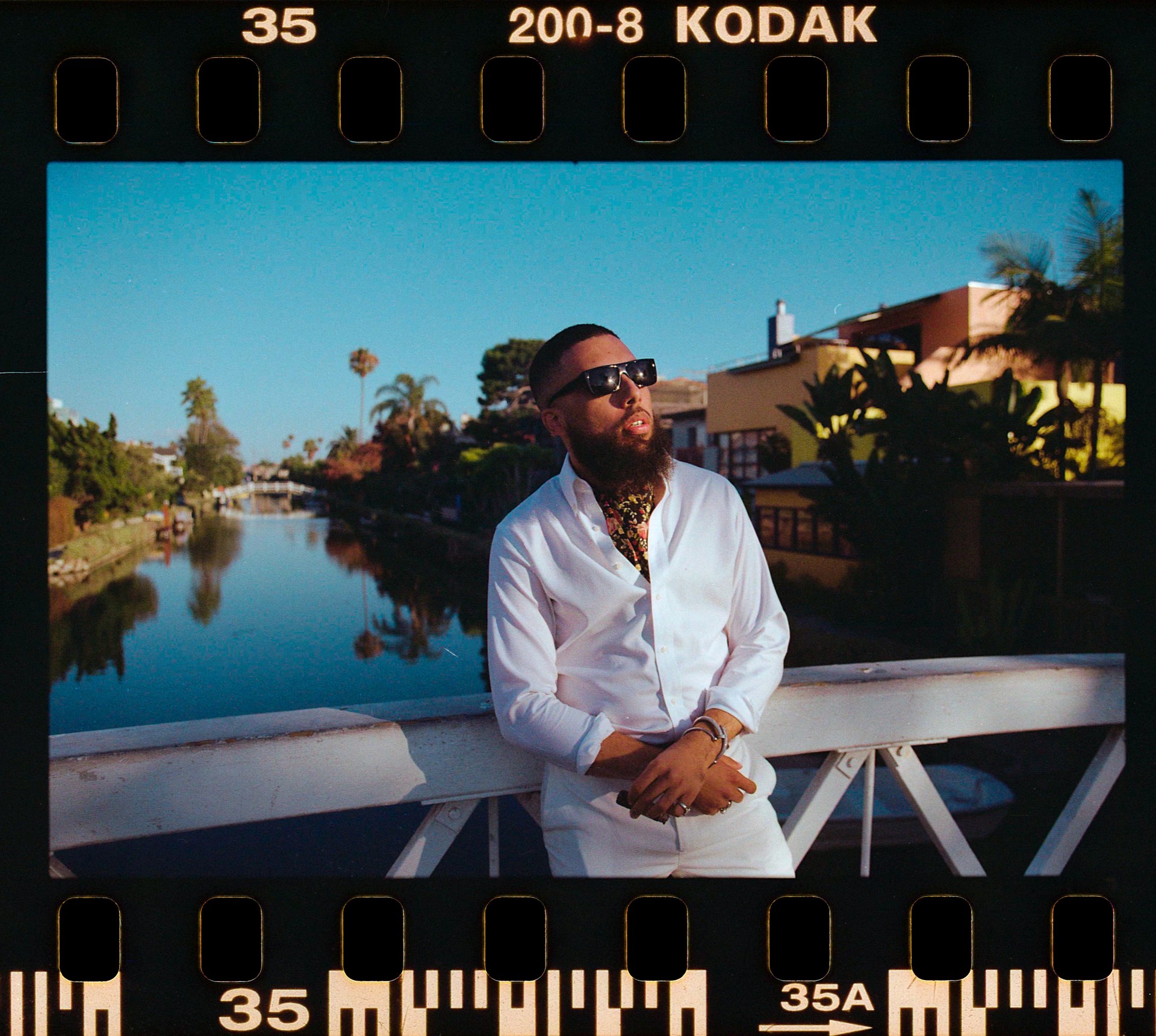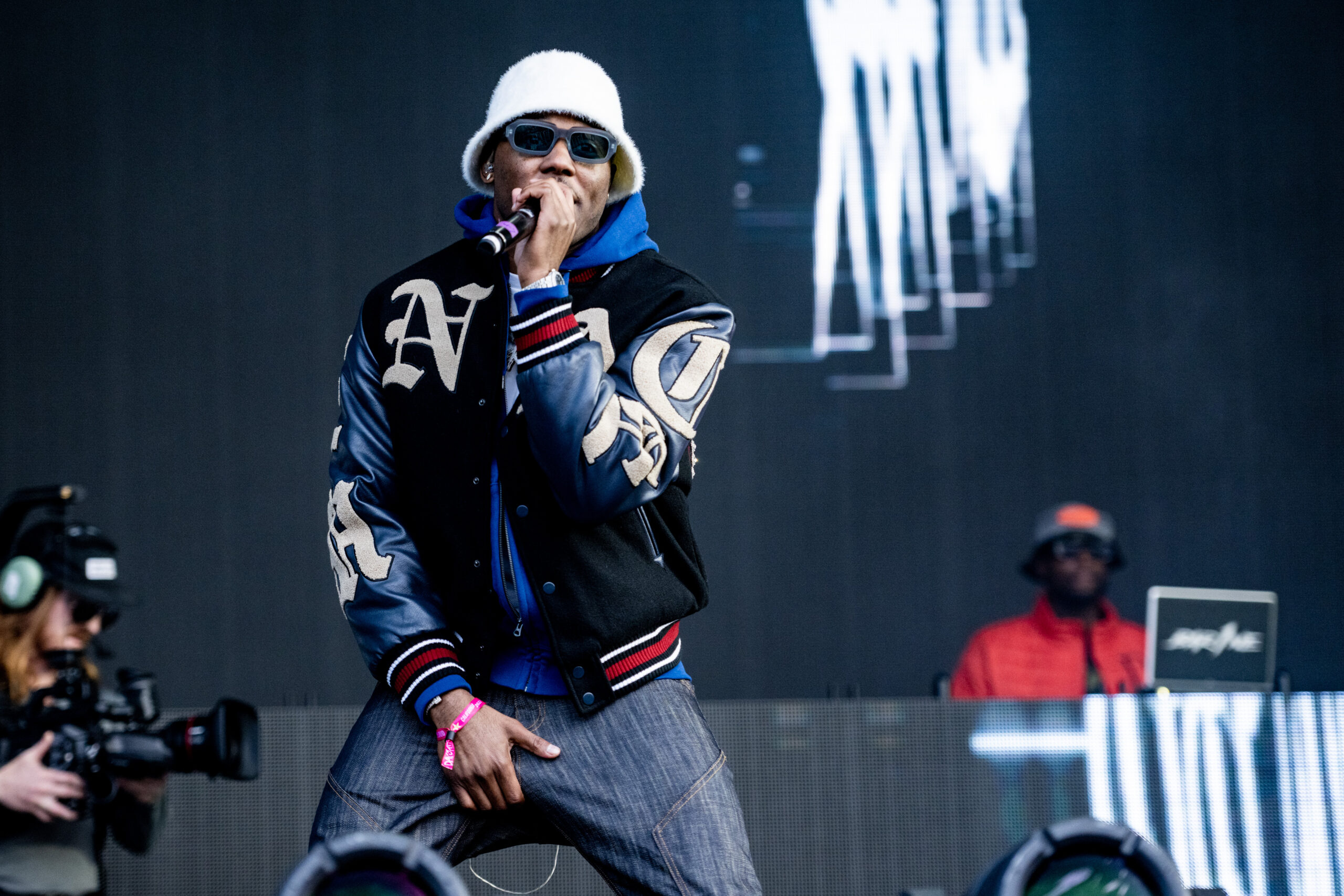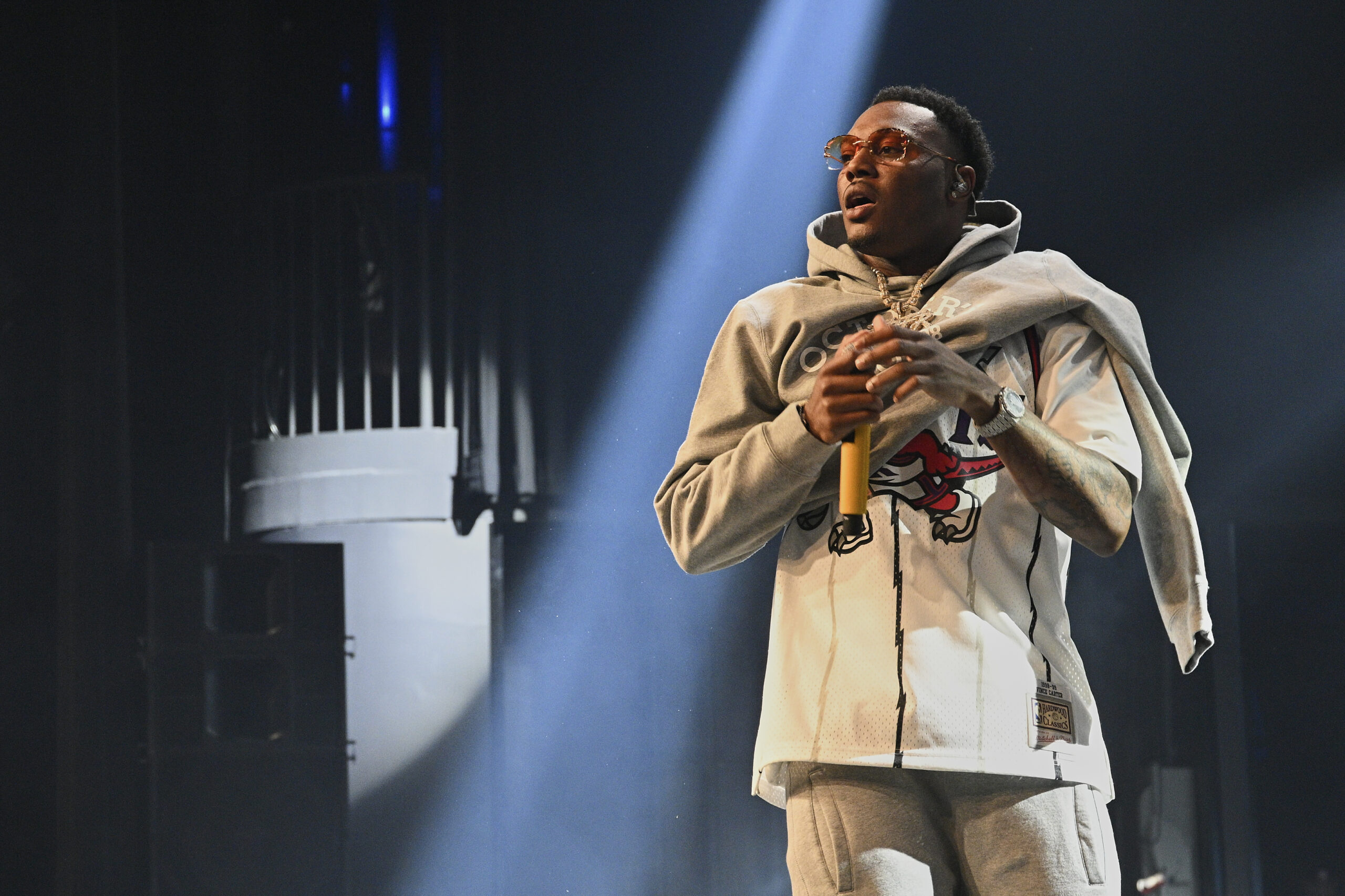We’ve witnessed Ralo’s hardships over the years. He was one of the most authentic voices in the South who was propelled to acclaim through mixtape-hosting platforms before he was arrested on federal charges after authorities reportedly discovered pounds of cannabis on his private jet. By the time that happened, Ralo had already become a pillar in his community, one who was recognized within Atlanta and outside of it.
With the rapper’s release from prison in 2023, he returned home to a new world where streaming algorithms reigned supreme and those who were once the hottest rappers had faded into obscurity and a new crop of artists emerged. Yet, Ralo’s M.O. hasn’t changed creatively nor has his commitment to his community. “I ain’t ever been the artist that had this hit record,” he explained to HotNewHipHop. “More people bought into me as a person, you know what I’m saying? Like, what I did for the community, what I do for the community and you know, the way I was living, the way I was moving. They were able to relate to me and relate to my story through music.”
His forthcoming album, Welcome Home, sees him telling his side of the story for the first time since his release. With appearances from Anthony Hamilton, K Michelle, Key Glock, and more, the 16-song body of work will appear on DSPs on Friday, August 23rd. Ahead of its release, we caught up with Ralo over Zoom to discuss the making of the project, his friendship with Young Dolph, and fulfilling his purpose.
This interview has been edited and condensed for clarity.
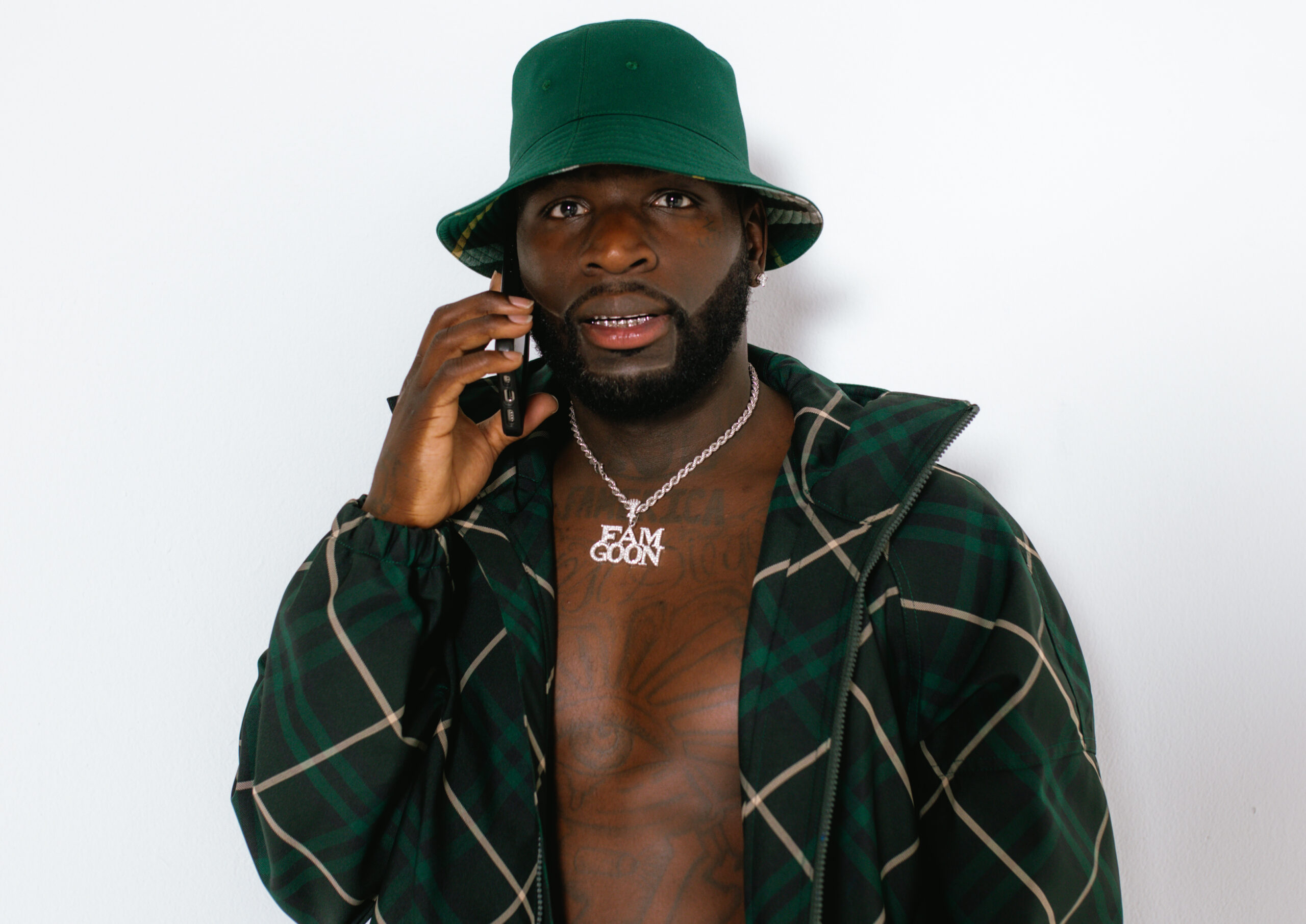
HotNewHipHop: The new album is due out on August 23rd. How does it feel working on a full body of work with new songs after six years?
Ralo: When we speak of work, you know, because that’s a different kind of work. Because I was never able to depend on a rap game as I am doing now. Before I got into this rap shit, I was just selling dope, and that was my stream of income and I was just having fun with this rap shit. I never even thought that I would accumulate any financial stability from it. However, I’ve been blessed to utilize my platform, my social media engagement, and my fanbase now to produce a lot of f*cking money, you know? And it just feels different having to strategize things versus just going to re-up and buy some dope and then selling it. So it’s a different hustle that I’m adapting to. Hopefully, after this, I’ll be able to – I want to focus on pushing artists and pushing my whole label itself, including myself, of course. But you know, I want to just do a broad push of, you know, being a CEO and being the person that I believe that I could be, you smell me? And others believe in, as well.
With the creative flow and getting back into the booth after such a long period, was it a fulfilling process for you to record this album?
I mean, in recording the album, you know, I did a lot of from jail. My album was pretty much done while I was in jail. When I got out, when I got into the halfway house, they didn’t allow me to go anywhere else other than work and back to the halfway house. So every day I’m going to work and [back to the] halfway house, work, halfway house. I was stuck in the studio all day, 10 hours per day for months, five days a week. So I’m doing 50 hours a week inside the studio. This coming from never having to do shit like that because I barely even was able to go to the studio before I went to jail and whatnot. I’m forced to be in there so I’m coming up with all kinds of creative shit, and I’m able to vent the way I want to vent, you know? And you know, with the music and the rap game, me, personally, it just helped with my mental health, you know? It just helped me, and it helped me within my soul and stuff like that. So, like, a lot of the times when I’m in the booth or something, I’m just venting, you smell me?
You say that on “First Day Out.” That line really stuck with me, when you say, “Every time I do a song, you’re going to hear me vent.” How do those lyrics reflect the process of you coming home and putting together this body of work while you’re in the halfway house?
I think that people really – you know, I ain’t ever been the artist that had this hit record. Like, you got your Bossman Dlow’s and stuff. They got big songs, and they were able to capitalize off that song, which is what drove their career and things of that matter. More people bought into me as a person, you know what I’m saying? Like, what I did for the community, what I do for the community and you know, the way I was living, the way I was moving. They were able to relate to me and relate to my story through music. So, everything that I do is kind of on a level of, you know, “I’m listening to Ralo, his story is real, and let’s see what he was talking about.” You know, they go back at that time and moment, and [they’re like] “Okay, he made this song when he got caught with that weed. He made this song when he got caught with them bricks.” Or, “he made this song when woopty woop got shot” or whatnot. So, like I was able to capture the people off of my story, you smell me? And it’s a blessing that others are able to relate to it and have a grand interest in it, you smell me?
How has that reception felt from your community and peers since you got back home? That feeling of that energy must be different considering all that you’ve gone through.
I mean, you know, from the outside looking in, people just look at me as some kind of big-time kingpin, drug smuggler. You know what comes with the streets and shit so they look at me in the manner of being mean or arrogant. But when people are actually able to come around me, it’s a whole different feel. They get to feel my energy, you know what I’m saying it? That’s when I mostly win my fans and whatnot. So coming home to all my people at the “First Day Out” video shoot, and they were vibing with me and they were able to capture that moment. That was history for all of us, and you know that went in the books. We can always go back and look at that video, you smell me?
What can we expect from Welcome Home? In terms of the features, how many songs, etc.
I mean, I did a lot, a lot of features with bigger artists and, one of the main problems I had with getting clearances was my commitment with Young Dolph, you smell me? So like with that commitment, it kind of prohibited me from getting clearances from artists that had grand dealings with CMG, which is a massive amount of artists in the industry. I wasn’t able to even put a lot of the songs on the album that I did with others, because, you know, people just was playing the politics games. They doing the songs with me and sh*t but as soon as it’s time to get clearances, n***as froze up because they want to keep their face clean within the industry with CMG, and they know I’m team Dolph. You know, that probably would have plucked the feathers of some people. However, I was able to still do my thing because at first, I was like f* ck a feature, I’m just gonna do Ralo.
I really loved Anthony Hamilton’s music throughout my life. I always heard him and I doing the record together, even when I was a kid, looking at 106 & Park and sh*t. I was able to get him on the record.
I had a female companion who left me while I was incarcerated, and she was really obsessed with K. Michelle. You know, I think revenge is the best success. Revenge is the best way to get that revenge and success, so I was able to go snatch her up, and she did a wonderful job on the stuff. Yungeen Ace, him and I got real good companionship with GMK and Draco out of Texas. Shout out to them. We were able to do a nice record together to go with the situation that he got going on because he was accused of a murder or whatnot, and I was accused of several murders or whatnot. So we were able to come together and vent through our record on that.
I got Key Glock. You know, a lot of blogs and a lot of people and YouTubers, they was always saying, man, me and Key Glock wasn’t kicking it, or we weren’t friends, or we had some kind of problem. I don’t know what the f*ck problems they thought we had, but I seen that a lot. He saw that a lot on a lot of blogs and stuff. At the time, we were together every single day. I don’t know where the hell they get that from, but I had to put him on there to show them we never had any problems. We’ve been doing records before, and we still doing records now. And, you know, people were saying I was stealing the Dolph trophy like, I’m trying to be the face of P.R.E or whatnot but that was never the case. Of course, we got the whole Paper Route on there. We got Kenny Muney, Big Moochie Grape, Goldmouf. We got Anti The Menace. That’s one of my good little homies from Atlanta. I really wasn’t trying to do songs with n***as I really didn’t f*ck with, you smell me? He’s one of them dudes that I really have a solidified relationship with, not just because I paid his bond or I put money on his book because I’ll do that regardless. I mean, I got a real friendship.
Is there a particular song that you’re excited for people to hear?
I mean, the record is called “I’m Me.” So, pretty much, it’s telling the people and reminding the people of myself and what I have done for others. Because I made this record while I was in prison, and I sent it over to Anthony Hamilton, and he put his vocals and things on that, and it came out a classic record. We actually did the video and everything. It’s reminding the people, because, you know, when I first bought my first neighborhood, which is Pakistan off of Lucia Avenue, which was what the feds have taken from me at that time, I bought it as a shell. Like it was no drywall, it was no framing, it was no sheetrock. It was no floors, it was no sinks, no bathroom, no toilets, no tubs, no nothing. You know, I had people that turned against me that I put the sheetrock on their wall, I put these floors on their ground, put this toilet in their bathroom so they can shit and shower. I put beds in their rooms. I put, you know, TVs on their walls and things of that matter. If a person did that for me, I would show grand gratitude and appreciation. I won’t ever cross that person by no means. And then it’s rap n***as that when they weren’t hot, I gave them verses, and you know, they ain’t do the same for me, you smell me? When I was in prison, I needed these things to accumulate cash and stuff to give me residual income for my family and sh*t so, like, I pretty much been against what those people had done to me, you smell me? And all kind of allegations that they put forth on my name. I’m speaking on those things as well, on that record. That’s a massive record for myself.
What were the biggest challenges for you in adapting to coming back home? Was there a hurdle that you had to overcome since then?
As you know, right now, we’re on Zoom. I’m used to walking into the HotNewHipHop office, throwing the little basketball we had. And, you know, I’m used to going in there and vibing every time I come to New York. That was one of the places that I always stopped by.
If we think back then, you had your MyMixtapez, your DatPIff, your Spinrilla. You had your Live Mixtapes. You had all these different platforms that we used to have to utilize and try to get on the front page of just to get a big look in this rap sh*t. But now, with streaming and shit, the payouts are different and people are able to have the financial stability that they didn’t have. These people let that money get to their head, you smell me? They poke their chest out, You know, arrogance is a bad thing to have within people because that causes mischief within the land. People that are humble, that are willing to have conversations to avoid problems, they are being stepped over because these other people continue to want to just f**k up and cause problems within the community and stuff like that. So like, my biggest hurdle is dealing with sucker sh*t like that, you smell me? Because a lot of things could be avoided with just a conversation. And when people feel like they need this of another person, they just ain’t willing to have that conversation, which is, which is what causes massive wars in the streets and sh*t like that. So I think that my biggest hurdle.
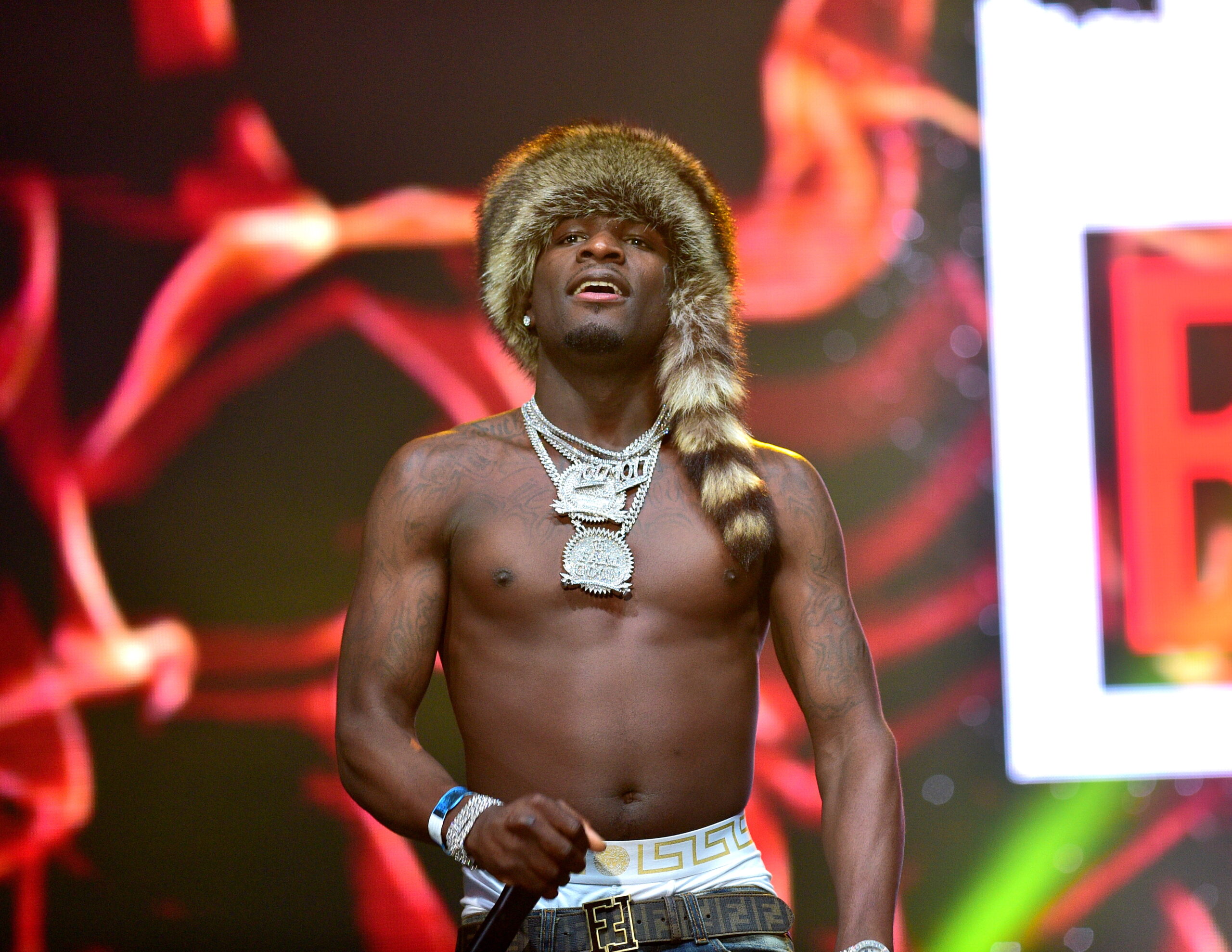
It feels like you have a renewed sense of purpose. How would you describe Ralo’s mission statement in 2024, as both a musician and a community pillar?
I mean, my mission statement will always be to revert ourselves to our Lord, you smell me? That’s the most important thing that we all need to strive towards is getting right with our Lord. And you know, getting to know Him, getting closer to Him, praying to Him, begging Him for forgiveness. And you know, asking Him to remove all the f*cked up desires that we have in our hearts, you smell me? My mission will always be to remind each other of our Lord. Get closer to Him.
You know, throughout my songs, I actually talk about the Lord quite a bit, you smell me? My religion is Islam, but it don’t matter what religion you is. It’s still, unless you’re atheist, of course, it’s still important for us to get closer to our Lord. I want to just be able to look back and say when I’m listening to this project, that this was my welcome home project, you smell me? To bring me home, bring me closer to my people. And I’m doing a whole lot of venting and a lot of things that I haven’t spoken upon, I spoke upon on this album. My mission within this album is to get people to understand what I did, why I did it, how I did it, and what would I be doing now moving forward.
You had Drake, Meek Mill, and a bunch of people just advocating for your release in a letter to Biden. How did you feel seeing that type of support from these major names, some of your peers who are still rocking with you and hoping to see you come home?
I mean, it’s an amazing feeling. You know, that’s some shit that I never felt like I was worthy of. To be able to be mentioned by the higher public figures in our community. I just wasn’t expecting those things. However, you know, it gave me hope. It gave me strength. The only thing that bothered me was that they didn’t know what I was truly being investigated for because that would prohibit me from getting a pardon because I had, you know, multiple violent accusations that the feds were trying to pursue me in. I didn’t want them to be misled about what was really going on. If it was just about marijuana, I would’ve got a pardon and their work wouldn’t have gone in vain. But due to the Attorney General reaching out to the prosecutor and saying, “Hey, this is just a marijuana case. What is the status of it? And why is Mr. Davis being treated so harshly for these charges?” The prosecutor responded to them and said, “Hey, this is just not a marijuana case.” They saying that I have possibly killed other people and stuff like that. And I’m telling them like, “No, that ain’t what I did,” or nothing like that, but that’s what they were trying to put on me. And you know, when people advocating that it’s just weed, you know, it just – I don’t want to mislead the people into thinking that it was just weed.
You’ve been using your social media page to shine a light on other people’s legal situations, especially peers and friends. What type of responsibility do you feel you have to use your platform to shed light on people who faced similar situations as yours?
I think that God gives all of us whatever He gives us, and it’s our duty to share with the people. We weren’t a seed that was planted on this earth to produce income for others. Some of us just have what we can make to satisfy our own family, our own personal bills, and things of that matter. But whenever you get massive amounts of money, it’s your duty, you have obligation to help the people. With my platform, I have over a million followers, and I have a lot of engagement. Like, I got over 30 million views on my page last month. It’s my duty to be that commercial for the people. The blogs only pick up a lot of drama most of the time, or the only thing they pick up is when a n***a buying somebody a car buying a b*tch a purse, and things of that matter. And it’s more than that going on in the community. It’s people getting shot, it’s people getting killed. It’s kids having funerals, and mamas burying their kids. It’s a lot of shit going on that doesn’t get broadcasted at all. I utilize my platform, and I know ain’t the news or no sh*t like that, but it’s my duty to be able to promote that stuff for them, and if I don’t, then you know that burden lies on me, because I believe in God, you smell me?
How did the loss of Young Dolph affect you?
I mean, you know that sh*t affected me in ways that I don’t even be able to control, you smell me? Like the last interview I did, I done cried tears. out and cried too. He was a great person. He was a great person that I called my friend, and he was heavy in supporting me. And a lot of times, we need that support from people that’s in the industry, or have a little bit more leeway than ourselves, like we really do need that extra push, the extra support, the extra help. And he was one of the people that I always could depend on. No matter what the circumstances were, he was always there for me, whether I was rich, poor, up or down, free, in jail, however it was. He was one of the only people that I knew who supported me wholeheartedly, without any financial gain or any clout or anything like that. That was one of the people that I feel like I lost that, you know, I probably won’t ever get back that kind of support, that love, you smell me?
I watched a recent interview where you said that rap was one of your worst investments but as you mentioned earlier, you’re interested in getting into a more executive position with your label and pushing new artists. But outside of music, what are you most excited to accomplish in the foreseeable future?
I mean, I just see a whole lot of artists that had a massive buzz and had money coming in, like a motherfucker. It’s a list that we can never complete. Like every day, these people come up with hit records, and you know, they had their time. They go buy their jewelry, they go buy their cars, they put this in their mouth and you know, two years later, they’re miserable. In order to prohibit that misery, you got to utilize the money that you’re making out this music to buy something that you can find peace in. And a lot of people just don’t understand you can’t find no peace in a car, you can’t find no peace in buying jewelry, you can’t find no peace in buying some p*ssy. You gotta be really interested in making it to your sanctuary. That’s your home. Make sure whatever place you call home, you invest the most into. Me, personally, I find most of my peace in my hood. So, I make sure I invest the majority of all my money that I make into my hood. Within doing that, I was able to build a community center, I was able to build a mosque, I was able to build a barber shop, a hair salon. All the places that I knew I was gonna have to go and spend money, I made sure I was able to do that because I know in two, three years, it’s going to be another n***a getting out of prison that’s hot, you smell me? I don’t to be a fool and be in a miserable state of mind, just like the rest of the artists that I see today.
The post Welcome Home, Ralo: Rapper Talks New Album, Standing On Principles & His Loyalty To Young Dolph appeared first on HotNewHipHop.

